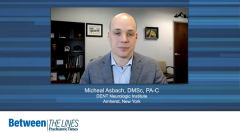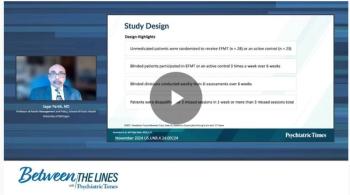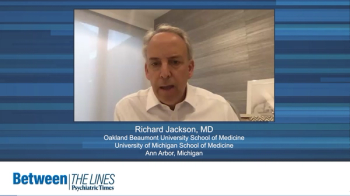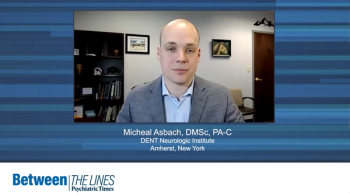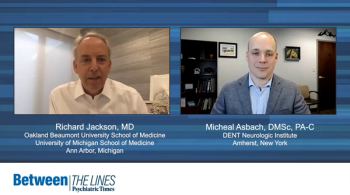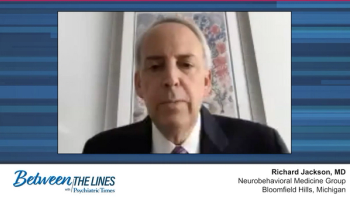
Takeaways and Insights
Richard Jackson, MD, and Micheal Asbach, DMSc, PA-C, provide their key takeaways from these studies and insights on how providers can assess the impact of of tardive dyskinesia (TD) in every visit.
Brought to you by Teva Medical Affairs.
Richard Jackson, MD: So let's briefly talk about some key characteristics of survey responders. How might they impact the studies?
Micheal Asbach, DMSc, PA-C: Certainly, so the mean age of respondents in the patient-based survey was 40.6 years old. Nearly 70% of responders had a college degree or a postgraduate degree. The mean age of caregivers was 40 years old and the mean age of the cared for patient was 62.6 years old. Caregivers with higher education may have been overrepresented in this study, and most caregivers reported that the patient was their parent or guardian, about 56% of the time. And that's who they had been caring for, upon average, about between one and 10 years. Patients who responded to the survey tended to have high levels of education and are notably younger than the patients cared for in the caregiver survey. These characteristics may be associated with the large impacts of TD on professional function that was assessed within the survey. Caregivers who responded to the survey were more highly educated than the general population and were potentially more informed of TD, more motivated to participate and provide care for patients with more severe TD symptoms, as participation required the recognition of TD.
Richard Jackson, MD: Michael, any final insights/takeaways about these studies that you'd like to share?
Micheal Asbach, DMSc, PA-C: I'm so appreciative that we have these studies to review and I hope that as clinicians watch this video, they'll also go and read the original 2 studies. We started this video by talking about the importance of not just thinking about TD as the absence or presence of movements, but rather what that impact may have on the patient and those around them. I think these studies really just do such a wonderful job highlighting how impactful, and how potentially devastating, tardive dyskinesia can be for not only the patient, but their caregivers, including their children, their spouses, and other family. As we see patients in our clinic that may be struggling with TD, I hope that this provides a very nice background for us to think about what questions to ask and how to approach conversations with our patients that are struggling with tardive dyskinesia.
Richard Jackson, MD: Thank you. And I would agree, the importance of assessing impact on each visit with our patients is critical. We look at the movements to make the diagnosis of tardive dyskinesia. We look at the impact to drive treatment. And truly, to help clinicians look at the impact of patients, myself and some colleagues actually published a tardive dyskinesia impact scale. Not so much another scale that is burdensome to fill out, but a scale to look at each of the domains, things like social, psychological, the physical domains, occupational, social, recreational, and to look at what questions to ask to better assess the impact of our patients. Because if we don't assess the impact of our patients, we're missing the key point of how we treat patients and that's the function in their day-to-day lives. So Michael, thank you for joining me for this discussion about the impact of TD on patient quality of life. And to our listeners, thank you for tuning in to this Psychiatric Times™ Between the Lines discussion. Thank you.
Newsletter
Receive trusted psychiatric news, expert analysis, and clinical insights — subscribe today to support your practice and your patients.


